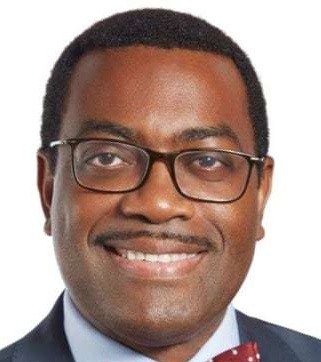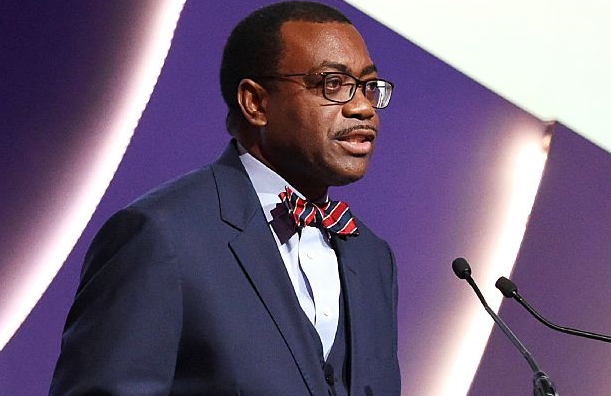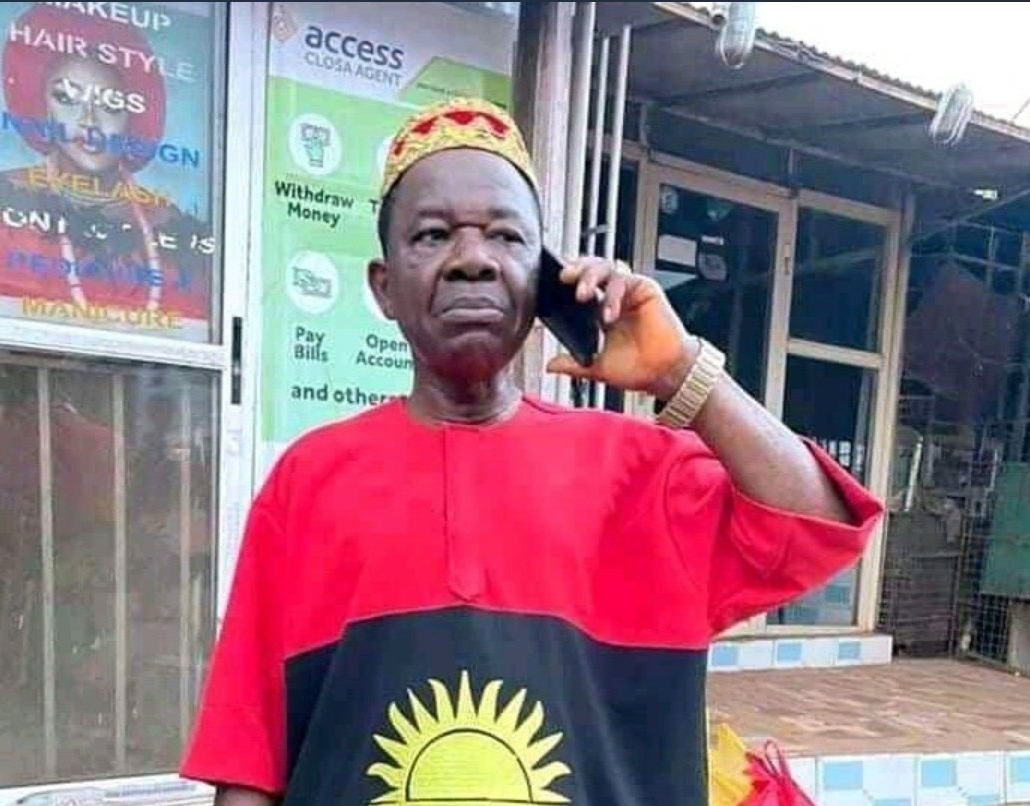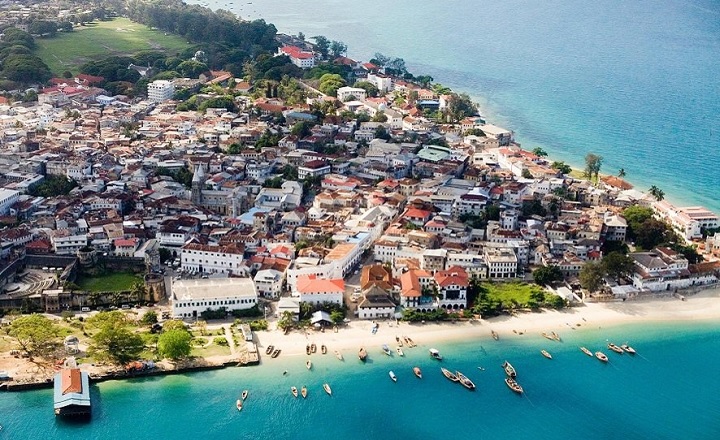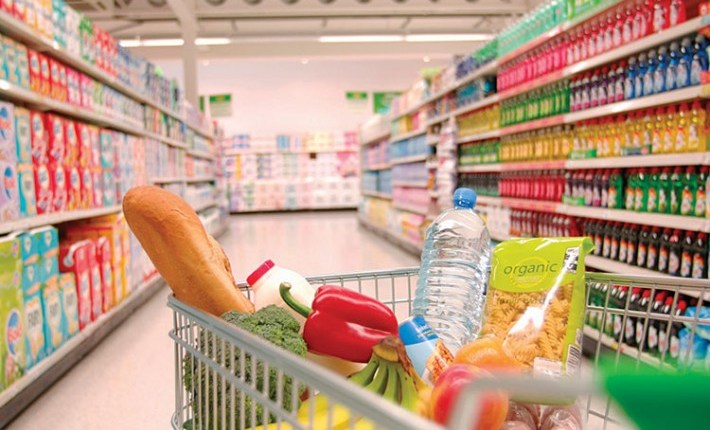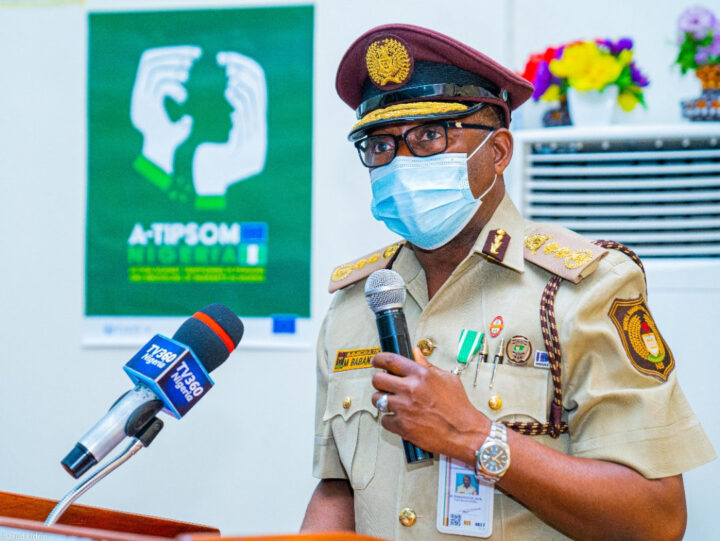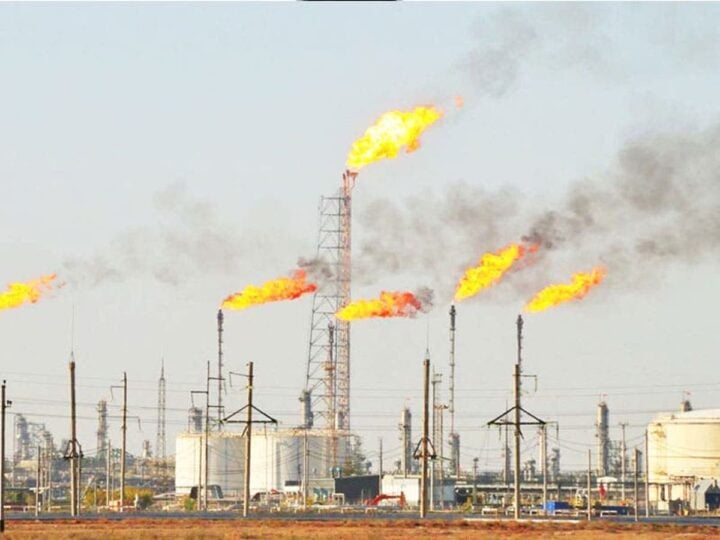We all have a pulse for Africa. That’s most important. And I can’t think of a better way as an African to live as an African, to die as an African and on the resurrection morning, I will tell God, give me at least a chance to rise as an African.
I have great admiration for the African diplomatic corps here in the United States – your good selves.
You represent your nations. You also represent our continent. A very powerful voice for our Africa in the most powerful nation in the world.
I would like to thank you for all the work that you have done over the years.
Advertisement
There is much that can be said about this group helped influence the US President’s Emergency Plan for AIDS Relief (PEPFAR); its role in the creation of the Millennium Challenge Account; in the creation of the African Growth and Opportunity Act (AGOA); and the list goes on and on.
When I was talking earlier with his Excellency, the Dean, he said, ” You know, this is a very powerful group,” I said, “Yes. I know”. And we feel it, we feel the way you represent us here, the voice, the clarity, and the resilience of your support. It’s very well appreciated your Excellencies.
I’d like to specially thank my dear brother, His Excellency Serge Mombouli, the Ambassador of the Republic of Congo and the Dean of the African Diplomatic Corps for organizing this event.
Advertisement
I’m most grateful to you, Your Excellency, for your friendship. Thank you very much for your trust. Thank you for your confidence, thank you for always being there, supporting me relentlessly, especially as I passed through some difficult times last year.
They say – if you want to really know your friends, you only know when you have challenges. And you, dear friend, I very much appreciate. You never stopped calling me every single day, throughout the year: “How are you doing? How is our continent doing? How is the Bank doing? We assure you of our support.” And I want to thank you, most sincerely, Your Excellency, for being such a true and dear friend. I am most grateful.
But he was not alone. The entire African Diplomatic Corps stood by me.
Your faith, your confidence, your indefatigable support from all your countries that you represent and your voice right here in the United States mattered a lot, and it encouraged me and inspired me a great deal.
Advertisement
Nothing, Your Excellencies, is more important to me than to be entrusted with a mission and a responsibility to transform, as fast as we can, the continent of my birth, of your birth, our beautiful African continent.
I wish to assure you that serving Africa and relentlessly accelerating its development is my most important mission, working closely with all our shareholders.
I am pleased that thanks to your support and the support of all our shareholders, I was re-elected as President of the African Development Bank with 100 percent of the vote. All our shareholders were on board — regional and non-regional — which is historic.
I can’t but thank you. I feel so humbled by this because it is the first time this has happened since the African Development Bank was established in 1964.
Advertisement
They say to whom much is given, much is also expected.
My team at the Bank, and some of them have joined me here today, and myself, with the strong support of the Board of Directors and the Board of Governors of the Bank, have continued to push relentlessly to deliver more and better for Africa.
Advertisement
In 2021, the African Development Bank was named by Global Finance, the prestigious US financial magazine, as the best multilateral financial institution in the world for 2021.
Also in 2021, the Center for Global Development ranked the African Development Fund — which is the concessionary institution of the Bank – as the second-best institution in the world, among all the largest global bilateral and multilateral concessional financing institutions. This includes all 49 in all the developed countries.
Advertisement
Your Excellencies,
We are a responsive bank. We are a solutions bank at the heart of Africa’s development.
Advertisement
At the core of our work as a multilateral development bank, there is a very clear strategy to fast-track Africa’s development.
It is simply called the High 5s. You can do this — I would like to see your hands raised in a high five.
The High 5s are to Light up and Power Africa, to Feed Africa, to Industrialize Africa, to Integrate Africa, and to improve the quality of life of the people of Africa.
Now, you know, they sound quite simple. But they are rapidly changing the face of Africa today.
The United Nations Development Program assessment shows that if Africa achieved this High 5s, it would have achieved 90% of the African Union’s Agenda 2063. It would also have achieved 90% of the UN Sustainable Development Goals. So, you can see that we work very closely with the African Union. That is why I’m so happy that Her Excellency is here from the African Union Commission, as is my dear brother Dr Mayaki, whom I have worked with for decades.
We are together, driving Africa’s accelerated development.
The results, Your Excellencies, speak for themselves.
In the past five years, the work of the African Development Bank High 5s has impacted directly on 335 million people – just in five years.
Take, for example, the following stats:
- 21 million people gained access to electricity.
- 76 million people gained access to agricultural technologies to ensure their food security.
- 12 million people gained access to finance through the investee companies that we invested in.
- 69 million people benefitted from improved transport, and a lot of the work that we did was done in collaboration with the New Partnership for Africa’s Development (NEPAD) because we did our projects together as part of the presidential initiatives on developing infrastructure for Africa.
- And 50 million people benefitted from improved water and sanitation. That is the kind of scale on which we work. And my staff will tell you that when people tell me anything about Africa, I say: I don’t want Mickey Mouse projects. I don’t want little things. Africa must dream big, do big stuff. The founders of this Bank had a vision, for it to be the premier financial institution. It is not about managing poverty on the continent. It is making sure the continent thrives and becomes a developed continent with pride.
Nothing makes me happier and of course prouder than hearing testimonies of our work; how it has touched the lives of people; stories of lives transformed.
You saw some of those right there on the video that we played a few minutes ago.
One of those stories was the case of an elderly lady named Grace. My wife’s name is Grace, so it was very good for me to see her. This was in Kenya where we had a project, which is called the Last-Mile Connectivity Project. Its goal is to connect 1.2 million households to electricity.
The problem was that the cost of connection was so high, that even though people had access to electricity, and Kenya through our support had reached about 75% in terms of access to electricity, there were still many households that could not connect to it because they were just poor.
So, we put together a program together with the Kenyan government, working with President Kenyatta – a fantastic program. And I came to see this in the rift valley of Kenya. I was right in front of this lady as our helicopter touched down. She was talking to the minister of energy for Kenya, and the minister said: “Well, maybe you should thank Dr Adesina because he is the President of the African Development Bank, whose resources made access to electricity for you possible. And she said: “Oh, I don’t know about the African Development Bank. I don’t know Dr Adesina. All I know is this: we once were in darkness but now we have electricity.”
Her statement inspired my colleagues and me.
That is what we do every single day. We make a difference, especially when it matters most, impacting the very lives of ordinary people that we are there to serve.
Your Excellencies, we will now be able to do more with the general capital increase that was provided to the African Development Bank by our shareholders in 2019.
I remember very well the advocacy of the African Diplomatic Corps right here, led by his Excellency, the Dean, Ambassador Mombouli, and all of you. You advocated with the US government, emphasizing the importance of increasing the general capital for the Bank.
The shareholders raised the general capital of the Bank from $93 billion to $208 billion dollars – the largest capital increase ever in the history of the African Development Bank.
I would like to thank you most sincerely and immensely for this advocacy and for reaching out to the US government as you did, which provided tremendous support.
As excited as I am at the incredible progress that we have made, I know there is still a lot to do.
And things just got tougher with the Covid-19 pandemic. Africa witnessed the slowest growth rate in two decades, as GDP growth declined to minus 2.1%. Africa’s GDP itself declined by $145 billion to $190 billion in gross value of GDP. Fiscal deficits rose significantly. And most important is what happened to people’s lives: 30 million people fell into poverty and another 30 million people lost their jobs and livelihoods. And worse, five million Africans were infected with the coronavirus. Sadly, we lost 200,000 of them.
To support countries to cope with the health-induced fiscal shocks, the African Development Bank moved very rapidly. The Bank launched a $10 billion crisis response facility to provide fiscal support to countries immediately.
We also got bolder. We went to the international capital markets to launch a $3 billion fight covid-19 social bond, which is the largest social bond denominated in US Dollars ever done in world history.
But I am also grateful to God, that African countries despite all the challenges are demonstrating resilience. I am a person of faith who believes that you can do the best you can, but God is the one that helps you to really get things done.
And I am grateful that Africa has been spared from the projections that we thought were going to happen. I lost a lot of sleep.
GDP growth rate is rebounding to 3.4% this year. And you will see, there is economic recovery across the board – for oil-exporting countries, for tourism-dependent countries, for commodity-export-dependent countries, as well as for those countries that are not dependent on any commodities. Across the board, we project that there is going to be a significant recovery.
However, Your Excellencies, the pace of that recovery will depend on two critical issues.
First, the level of vaccinations that Africa receives, and second, how we tackle the continent’s rising debt levels.
Let me start with the first one, on the issue of vaccinations. Today, Africa has only fully vaccinated 24 million people. That is only about 2% of the continent’s population. We have 4.4% of the population receiving one dose, and 1.8 % of the population receiving the second dose. Compare this respectively to 70% in Europe, and 56% right here where you are, in the United States.
So, while developed countries are moving into booster shots, Africa is struggling to just get basic shots.
One of my staff members is here and that she will remain nameless, but she has been an inspiration for the last couple of days. I shouldn’t really indicate gender, lest people here figure out who I’m talking about.
But this staff member of mine believes that the Bank being a triple-A financial institution, it must also be triple-A when it comes to vaccinations. And so, she has taken Pfizer, she has taken Johnson & Johnson, she has taken AstraZeneca. And every time we talk to her, we find that she has taken another upgrade.
But the reality is, you can do that here, but in Africa, with the paucity of vaccines, you can’t.
Progress, however, is being made albeit slowly, by Covax. So far, Covax, which is the facility that was set up to provide vaccines globally to developing countries, has delivered 71 million doses, out of the 600 million doses that were supposed to be produced and delivered to Africa.
I would like to commend the African Union on the leadership of my dear brother, His Excellency Moussa Faki. I also salute the leadership of President Cyril Ramaphosa, who brought Africa together with an Africa vaccine acquisition program of the African Union.
And so far, they’ve been able to deliver 4.3 million doses to 29 countries. Progress again is going to be much faster. We expect 45 million doses to be delivered by the end of the year.
But the question to ask is, why is this the case?
Is it because the developed countries have bought all the vaccines? Not only current vaccines but future vaccines. The problem is also that those manufacturing the vaccines face export restrictions. So, they couldn’t export the vaccines because everybody has been trying to do vaccine nationalism.
Your Excellencies, Africa must learn some critical lessons from this experience. Africa cannot, and Africa must not outsource the health security of its 1.3 billion people to the generosity and the benevolence of others.
Africa must ensure health security for its people, and I will say that we must look at health, from the perspective of a healthcare defence system.
Today, coronavirus is just a single virus, and you can see what a disaster it has created all over the world. Another one will come. Yes, another one will come, but we cannot be in this situation where we are not able to respond, or where we are the last to be able to get access to vaccines.
Today, you cannot travel out of Africa to many places because of vaccine passports. And because African lags on this, it means that it will affect tourism. It will affect foreign direct investment, it will affect confidence in the continent, and make it more difficult for the recovery process to happen.
I want to thank the US government – President Biden – for the donations of vaccines that he has made, which is very laudable, by himself and the G7, but we must now do three things.
First, we must develop Africa’s indigenous, pharmaceutical capacity, its industrial manufacturing capacity. Right now, Africa imports more than 80% of all the pharmaceutical products that we use on the continent.
Why? There’s no reason for that. We are just simply depending on others. That’s not to say, my neighbour may love me to death. But my neighbour is not going to send my kids to school. I must take care of business.
Secondly, is we must develop Africa’s vaccine manufacturing capacity on our continent, not only for Covid-19 but also for other things that will happen, post-Covid-19.
And finally, we must revamp Africa’s quality healthcare infrastructure.
Let me tell you why this is very important for me because it’s personal. I lost my older brother in 1999, at a very young age and all he had, was Malaria. That was all. He went to a clinic, and they said he was running a fever, so they had to give him an intravenous (IV) injection, a small IV. And within five seconds of receiving it, he was dead.
Why? Because they found out that the IV that they gave him had lead in it. In fact, it was not an IV. It was water that had been sold to the hospital as an IV. So, you can imagine, we must not only make sure that we produce medicines, but we must make sure that we have quality global standards and safety for everybody.
This is at the core of what we’re going to do. The African Development Bank will therefore be investing $3 billion dollars to support Africa’s pharmaceutical and vaccines production.
The Bank is planning, subject to the approval of our board of directors, to invest in helping to build Africa’s healthcare infrastructure, its primary, secondary and tertiary healthcare, and in particular, diagnostic facilities.
Let me give you a little bit of why we need to do this. Today, if anybody goes through surgery in Africa, the risk of death is 200% above that of the global average. If you go to diagnostic facilities, you will find that the accuracy is about 30% of the global average.
And if you look at the magnetic resonance imaging (MRI) that we have, in terms of MRI density, it’s all about 0.74, for a million people.
You look at the rest of the world, and it’s easy to see that it is very high here. And so, we must make sure that we secure ourselves. And because the Bank has been investing a lot in infrastructure for a long time, we decided – look, you know, it’s great to have good roads. It’s great to have great ports. But what good are they if they are carrying dead people or sick people? So, we decided we must focus on helping to revamp Africa’s quality healthcare infrastructure.
Your Excellencies, As Africa tackles Covid-19 challenges, it must now also tackle the issue of debt, which I mentioned to you earlier. And I would like to discuss this ahead of the International Monetary Fund (IMF) and World Bank Annual Meetings taking place here later this month.
More than 17 African countries were downgraded immediately because of the very widespread negative impacts of Covid-19. They changed their outlook to negative, in many of the countries.
Africa’s debt-to-GDP ratio rose from 60% to 70% to 75%. Africa’s quantum of debt grew to $845 billion. Now, what is particularly worrying for me is the composition of that debt.
Because if you look at it, in 2000, concessional debt, Paris Club debt, was about 52% of total Africa debt. By 2019, that had declined to 27%. But the dependence on private markets, private debt and commercial debt, rose in substitution.
In fact, the share of Africa’s debt that is from private and commercial debt, rose from 17% in 2002 to 40% today. Most of that short-term debt, high yields. So, this is where the problem really is.
And so, we must make sure that we pay attention to this issue. And that brings me to the role of the IMF.
The recent issuance of $650 billion special drawing rights (SDRs) by the IMF offers a unique opportunity to support countries going forward. And I would like to use this opportunity, your Excellencies, to applaud US Treasury Secretary Janet Yellen, because without Secretary Yellen’s strong support, and obviously also President Biden’s, this would never have happened.
I also want to use the opportunity as well to commend the leadership role that Kristalina Georgieva played in this role because without her leadership, we wouldn’t be talking SDRs today.
While Africa is the least resourced to tackle the continual effects of the pandemic, we only receive, however, $31 billion out of the $650 billion. And of course, those that have most of it don’t need it. It’s just the way in which the allocation formula works at the IMF.
Advocacy efforts, Your Excellencies, are now needed for developed countries to reallocate the SDRs that have been issued to them, which they don’t need. They should reallocate those unneeded SDRs to developing countries, to Africa. And I would like to commend my dear friend, President Emmanuel Macron for the leadership that he has shown on this.
And I don’t know if you saw it, it was just last week – or this week. President Macron announced that he plans to donate 20% of their own allocation of SDRs to Africa. That’s what I call commitment.
Your Excellencies,
In addition to channelling SDRs to the IMF’s Poverty Reduction and Growth Trust, which is where it’s going to go largely, and of course, to the newly created Resilience and Sustainable Trust, we must also consider and support SDRs to be reallocated to other multilateral development banks, such as the African Development Bank. This is because we are a prescribed organ of the SDRs.
Multilateral development banks like the African Development Bank can leverage and that’s a keyword – leverage. We can leverage SDRs significantly. In fact, if the African Development Bank were to get $50 billion, we could leverage that to be $200 billion, that is provided through development finance institutions, across Africa.
And therefore, Your Excellencies, I would like to request you to kindly advocate for the SDRs to also be reallocated to the African Development Bank, for Africa. And that, of course, is the position of the African Union. That is the position of all our leaders on the continent.
Your Excellencies, climate change is also important. Ambassador Mombouli also mentioned this to you in his remarks. The Egyptian Ambassador was just saying that to me while I was sitting there.
The African Development Bank is spearheading efforts to support Africa in tackling climate change. We have doubled our allocation for climate finance to $25 billion by 2025. And that would be 40% of our total financing going to climate finance.
But most important, Your Excellencies, is that we are mindful of what our challenges are. Our challenge is basically climate adaptation. Africa does not contribute more than 4% or even less, of greenhouse gas emissions, but we suffer from it.
From drought to floods. The Ambassador from Mozambique is here. We had Hurricane Idai and Kenneth. You see the devastation across East Africa: the drought, the locust swarms and everything that we have. We are at the receiving end of this.
The report of the International Intergovernmental Panel on Climate Change is quite sobering and makes you quite afraid because it says that Africa will heat up faster than the rest of the world and earlier than the rest of the world – 10 years faster than projected. That’s scary.
And that’s why the Bank is responding. We are increasingly putting more of our resources to adaptation. Today, we have 67% of all our climate finance being in adaptation, which is the highest of any international financial institution in the world.
In fact, just last week at the UN General Assembly, I’m sure many of you may have been there. The UN Secretary-General, António Guterres said the following, and let me quote him.
He said, “The African Development Bank has set the bar in 2019 by allocating half of all its climate finance to climate adaptation. Some donors have followed their lead.”
And then he concluded, “all must do so.”
That is the leadership that we have shown on this issue.
I and the former United Nations Secretary-General, Ban Ki-moon are also working together.
The Global Center for Adaptation, he chairs, together with the African Development Bank, have created what is called the African Adaptation Acceleration Program.
This program is mobilizing an additional $25 billion for African climate adaptation. So, we can secure ourselves in the face of all this onslaught we are going to be getting.
Energy is at the core of what we do. We are driving the potential of the continent on renewable energy, and we should.
God is good to Africa.
We have 11 terawatts of solar, 350 gigawatts potential of hydro, 150 gigawatts towards the potential of wind, and we have about 35 gigawatts of geothermal. We must harness this because nobody eats potential, nobody uses potential, we must unlock potential.
And one of the things that we are doing, Your Excellencies, is to launch what we have called Desert to Power. Desert to Power.
The Desert to Power initiative is a $20 billion investment by the Bank and its partners to create the world’s largest solar zone in the Sahel. It will help to develop 10,000 megawatts of electricity and provide electric power to 250 million people. That is the scale we are talking about and that is critical for the Sahel.
The former prime minister of Niger is here. Many of you are here from the Sahel. Terrorists are taking over because of dark places, and they love dark places. We want to light up and power the Sahel.
I want to request Your Excellences for your help to advocate for the strong support of the United States government for this transformation initiative for Africa.
I was very pleased to have met with President Biden’s Special Envoy on Climate, Secretary, John Kerry, last week. He applauded the leadership of the African Development Bank in this area, and he promised to support Africa strongly in this endeavour.
Another initiative, which we have launched together with the African Union, is the Great Green Wall initiative. Its aim is to provide an environmental defence shield in the Sahel and the Sahara against desertification. Otherwise, many countries in the Sahel may even disappear because of sand and desertification all over that area.
So, it is our responsibility to ensure that we protect very fragile and vulnerable regions from the impact of climate change.
Your Excellencies, The Africa Continental Free Trade Area (AfCFTA), represents a huge opportunity to transform Africa with a combined GDP of $3.3 trillion, the largest free trade zone in the world. The size of consumer and business expenditures in Africa will rise to $6.7 trillion by 2030.
So, Africa is no longer a continent that can be ignored and if you are not investing in Africa I will ask the question, where in the world are you investing?
The African Development Bank has invested over $40 billion in infrastructure, working closely with the African Union’s NEPAD. In fact, when it used to be the NEPAD Authority, I worked closely with Dr Mayaki, who has been spearheading a lot of our work on infrastructure for Africa.
Your Excellencies, if you want to know about the African Development Bank, we are the largest financier of infrastructure in Africa. Far above the World Bank, far above any institution that you can find.
We helped to build the historic and landmark Senegambia Bridge. The Ambassador from The Gambia is here with us this morning and so is the Ambassador of Senegal. If you look at each other, there was no bridge between those two countries. So, we financed the construction of the Senegambia Bridge, and today, people can just cross the bridge. So, it’s very inspiring for us.
With $1 billion, we helped to finance the 1000-kilometres highway between Addis-Ababa and Nairobi. This now provides an opportunity for Ethiopia to access Kenya’s Mombasa Port. And that is going to allow Ethiopia and Kenya to increase their trade by 400%. That is the power of infrastructure.
The Bank-financed Kazungula Bridge now connects Botswana, Malawi, and Zambia – 1170 kilometres, which is now boosting trade and access to the sea and allows these countries to reduce the cost of transport by 15 to 25%.
The Bank-financed Bamako –Dakar Highway now carries more than 50% of Mali’s international trade straight to the Port of Dakar.
The Bank has supported several ports, including those of Morocco, Togo and Namibia. In fact, with Namibia’s Walvis Bay Port today, we have helped to increase its capacity by 70%.
And together with Africa50, the Bank is supporting the construction of a road-rail project between the Democratic Republic of Congo and the Republic of Congo.
Two people standing on the sides of the two countries can just look across at each other. They can try to shake hands from a distance, but now they can easily just cross from one side to the other.
So, your Excellency, Ambassador Mombouli, this is one in which your President and the President, my dear brother, Sassou Nguesso, and President Tshisekedi, are working very closely, and we are very proud of this.
And for those in West Africa, the African Development Bank is working with the Economic Community of West African States (ECOWAS) and will be financing, the Lagos – Abidjan to Dakar Highway, which will carry more than 80% of all the trade in West Africa.
So, Your Excellencies, Africa’s massive infrastructure needs remain, and they present economic investment opportunities for institutional investors in our countries, but also for investors from the United States. This is the time to change the investment narrative on Africa in the United States.
The African Development Bank is developing strategic alliances and partnerships, taking advantage of the new outlook of new administration.
We are working closely now that the US Development Finance Corporation, The Millennium Challenge Corporation, the Corporate Council on Africa, the United States Trade Development Agency, USAID, and of course, the Department of Energy, PROSPER Africa, and the US Exim Bank to launch a new approach of working together to massively direct US capital investments to infrastructure in Africa.
The African Development Bank applauds the United States Government’s Build Back Better World launched by President Biden. We stand fully ready with your engagements as ambassadors here and with the US departments and agencies to help to make this initiative a huge success. It is a unique opportunity for our continent.
Finally, Your Excellencies, this is a time to expand US investments in Africa at scale.
The Africa Investment Forum, organized by the African Development Bank, which has become Africa’s premier investment marketplace, presents the opportunity for doing that. We had the first two editions of this forum in 2018, and 2019 before Covid struck. In 2018, we mobilized $30.7 billion of investment commitment interests to Africa. And this in less than 72 hours.
Some people used to think that Africa is not bankable, I know Africa is bankable. I just don’t know where your bank is. You should bring your bank to Africa.
In 2019, we mobilized $40 billion in investment interest – again, in less than 72 hours. This included a $24 billion transaction for liquefied natural gas in Mozambique. It will make Mozambique the third-largest producer of liquified natural gas in the world. I think you can give the Mozambican Ambassador some applause for this.
Your Excellencies, the 2021 Africa Investment Forum will be held from the 1st through the 3rd of December in Abidjan. I want to invite you to join the forum and we’re exchanging with your countries and Your Excellencies to participate in the forum’s unique investment boardrooms. These are sessions where there is really no talk. It is all about investments, transactions, and deals that are done. The only words that matter, are closing interactions at these events.
Your Excellencies, as I close, let me say again that just like you helped the Bank, in its general capital increase, I will need you again. To strongly support the 16th replenishment of the African Development Fund, which we use to support the low-income countries and fragile states.
We would like the African Development Fund to be allowed by the donors to go to the capital market, just like the International Development Association (IDA) has gone to the capital market. We have equity in the African Development Fund of $26 billion. But we can go to the capital market and raise an additional $33 billion that we can use to scale up support for African economies, especially low-income countries.
Your advocacy with donor countries, especially the United States Treasury, and the mobilization of strong support for this, Your Excellencies, by your Heads of State and Government, is crucial.
Again, Your Excellencies, let me say that we look forward to working together with you, to help us make the African Development Fund’s 16th replenishment another momentous period to scale up resources for Africa.
And, of course, I will not sit down without letting you know that I love talking to you. It’s good to see you, but I want to see you more, and that means that I’ve got to have an office here. And that’s what we would like to ask you to advocate for. It is very important that Africa’s voice be heard. It is very important to have the mindset on Africa change.
Africa is not begging for help. Africa is an investment destination for the United States, and it must be respected by all, as the frontier of investment in the world.
So, thank you very much, Your Excellencies. It is very good to be here today, and I look forward to, hopefully, hopefully, coming back and inviting you to our office here in Washington.
Thank you.
This is the address by Akinwumi Adesina, president of the African Development Bank (AfDB), to African ambassadors in Washington on October 1, 2021.
Views expressed by contributors are strictly personal and not of TheCable.
Add a comment
